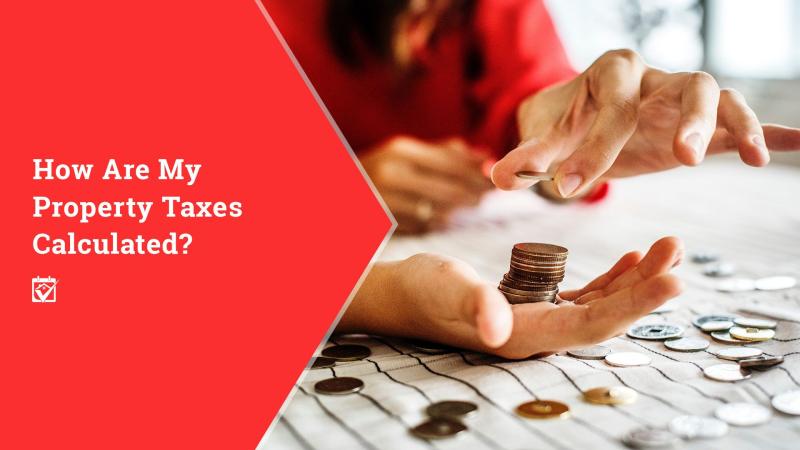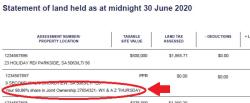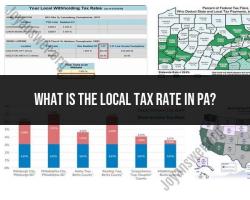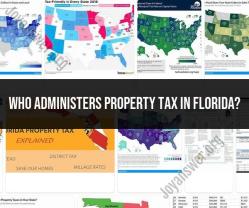How are property taxes calculated?
Property taxes are calculated based on the assessed value of a property and the local tax rate. The specific methods and formulas can vary by location, as property tax systems are typically administered at the municipal or county level. However, there are some common elements and general steps involved in calculating property taxes:
Assessment of Property Value:
- The first step is to assess the value of the property. This can be done through a property appraisal or assessment conducted by local government assessors. The assessed value may not necessarily be the same as the market value of the property.
Determination of Taxable Value:
- The assessed value may be adjusted to arrive at the taxable value. Some jurisdictions use a percentage of the assessed value as the taxable value. For example, if the assessed value is $200,000 and the taxable value is set at 80%, the taxable value would be $160,000.
Application of Tax Rate:
- The local government determines a property tax rate, often expressed as a percentage (e.g., 1.5%). This rate is applied to the taxable value of the property to calculate the annual property tax owed.
Special Assessments or Exemptions:
- Some jurisdictions may have additional assessments or exemptions that can affect the final property tax amount. For example, there may be special assessments for local improvements like sidewalks or exemptions for certain types of properties (e.g., homestead exemptions for primary residences).
Calculation of Tax Due:
- The final property tax due is calculated by summing up the various components, including the base property tax and any additional assessments or adjustments.
It's important to note that property tax systems can vary significantly from one location to another, and the specific formulas and rates depend on local laws and regulations. Additionally, some jurisdictions may reassess property values periodically to ensure they reflect current market conditions.
To obtain accurate and up-to-date information on property tax calculations for a specific location, it's recommended to consult with local tax authorities or access relevant documentation provided by the municipality or county.
1. Factors Contributing to Property Tax Calculations
Property taxes are calculated using a formula that involves two main factors:
Assessed Value: This is an estimate of the fair market value of your property, determined by local assessors. It typically represents a percentage of the actual market value, ranging from 20% to 100%.
Tax Rate: This is the percentage of the assessed value that you owe in property taxes. Tax rates are set by local governments and can vary significantly depending on your location, type of property, and other factors.
In addition to these two main factors, there may be other considerations that affect property tax calculations, such as:
Special Assessments: These are one-time charges levied to pay for specific improvements in your area, such as new roads or schools.
Tax Exemptions: Certain properties may be exempt from property taxes altogether, such as government-owned properties or religious institutions.
Tax Deductions: Some homeowners may qualify for deductions that reduce their taxable property value, such as deductions for senior citizens or veterans.
2. Determining Property Assessments and Tax Rates
Property assessments are typically conducted periodically, such as every three or five years. Local assessors use various methods to determine the assessed value, including:
Comparable Sales Analysis: This method involves comparing the sale prices of similar properties in the area to determine the fair market value of your property.
Cost Approach: This method estimates the value of your property by considering the cost of replacing it with a new structure of similar size and quality.
Income Approach: This method projects the potential income that your property could generate and then capitalizes that income to determine its value.
Tax rates are set by local governments, typically through a process that involves public hearings and votes. They are based on the revenue needs of the government and the total assessed value of all properties in the jurisdiction.
3. Exemptions and Deductions Impacting Property Tax Calculations
There are a variety of exemptions and deductions that can reduce the amount of property taxes you owe. These vary depending on your location and may include:
Exemption for Senior Citizens: Many states offer property tax exemptions or reductions for senior citizens who meet certain income and age criteria.
Veterans' Exemptions: Veterans may be eligible for property tax exemptions or reductions based on their military service.
Disability Exemptions: Homeowners with disabilities may qualify for property tax exemptions or reductions if their disability affects their ability to live independently.
Exemptions for Religious and Charitable Organizations: Properties owned and used exclusively for religious or charitable purposes may be exempt from property taxes.
Homestead Exemption: Many states offer homestead exemptions, which reduce the taxable value of a homeowner's primary residence.
In addition to these general exemptions, there may be other deductions available in your specific jurisdiction. It is always advisable to contact your local tax assessor's office to inquire about any exemptions or deductions that may apply to your property.






